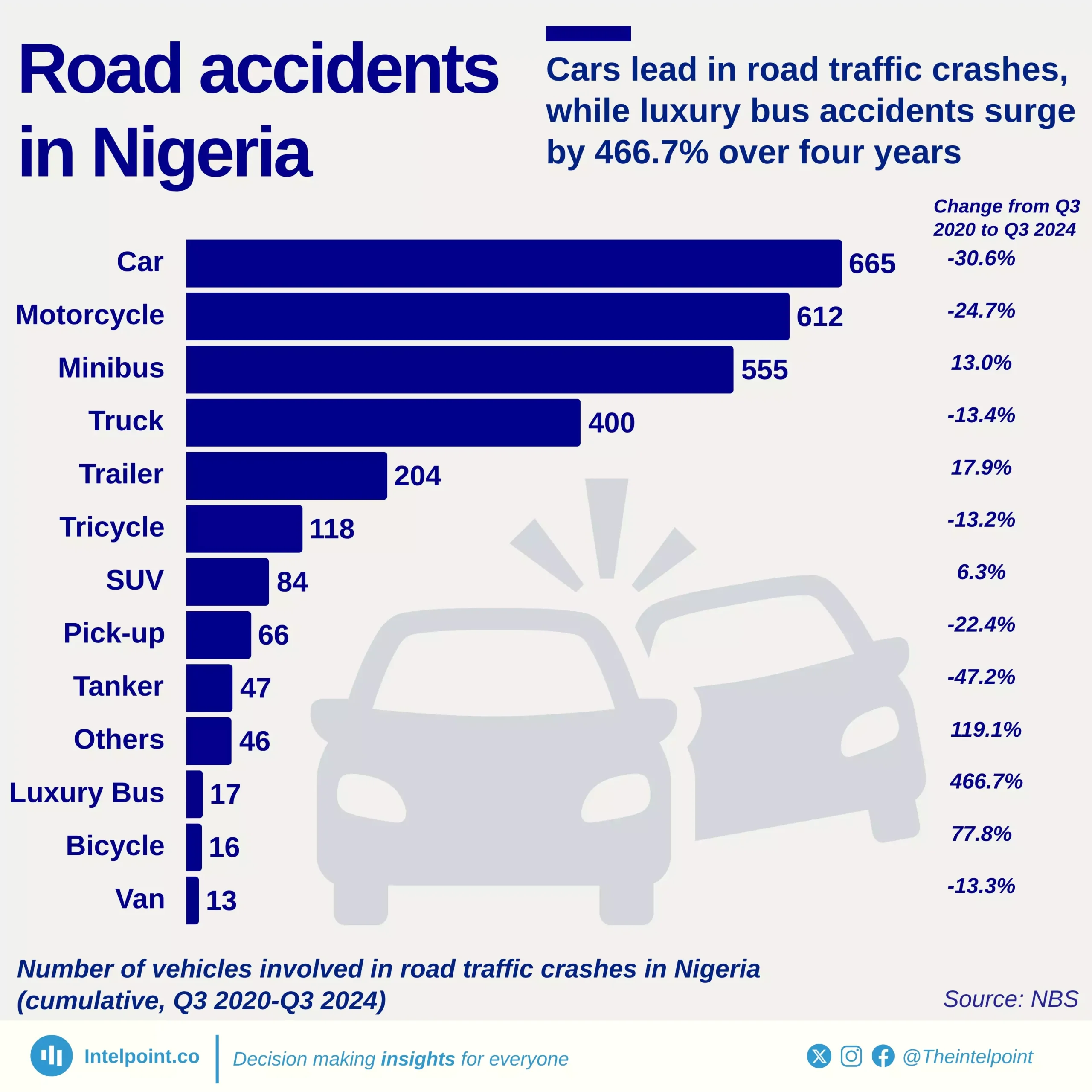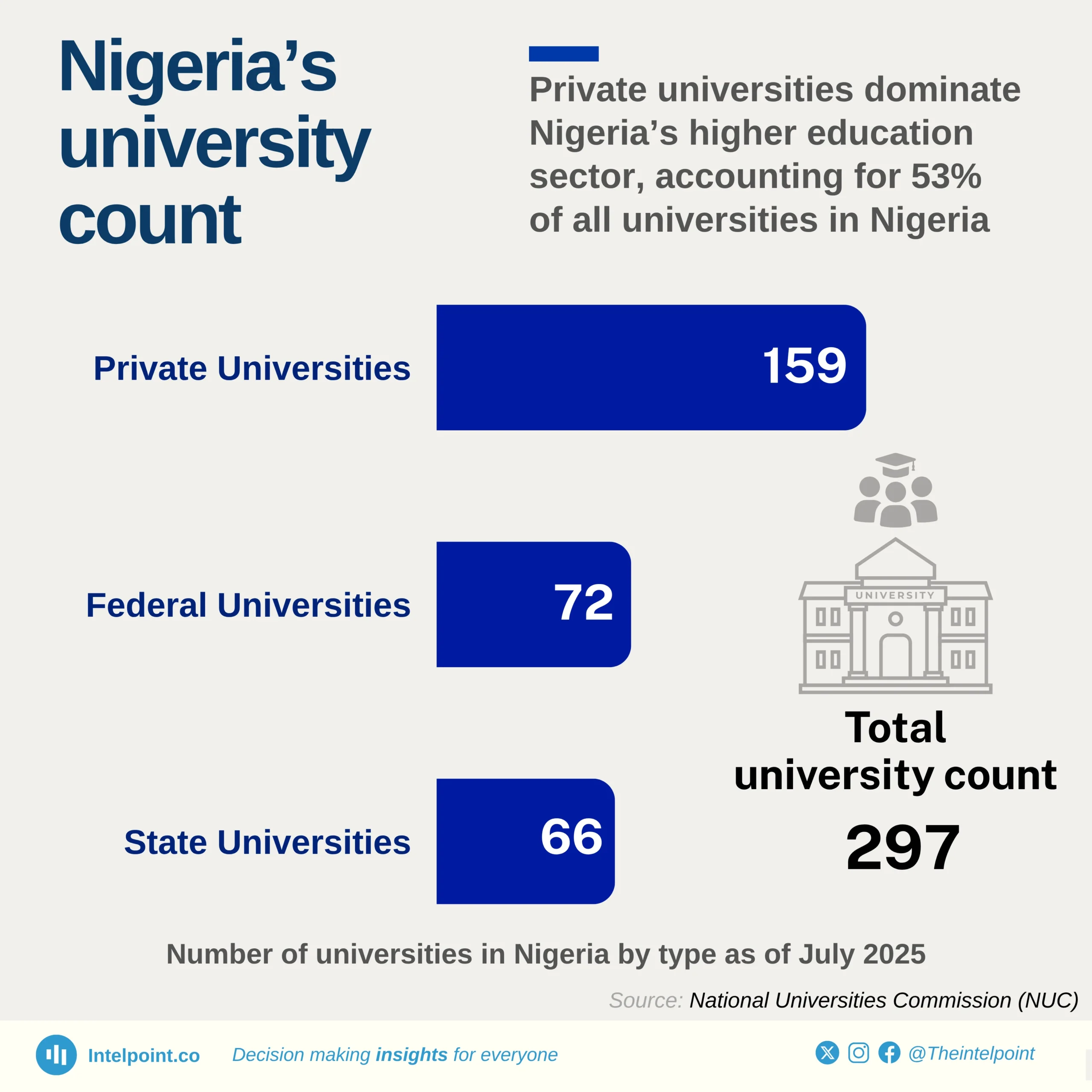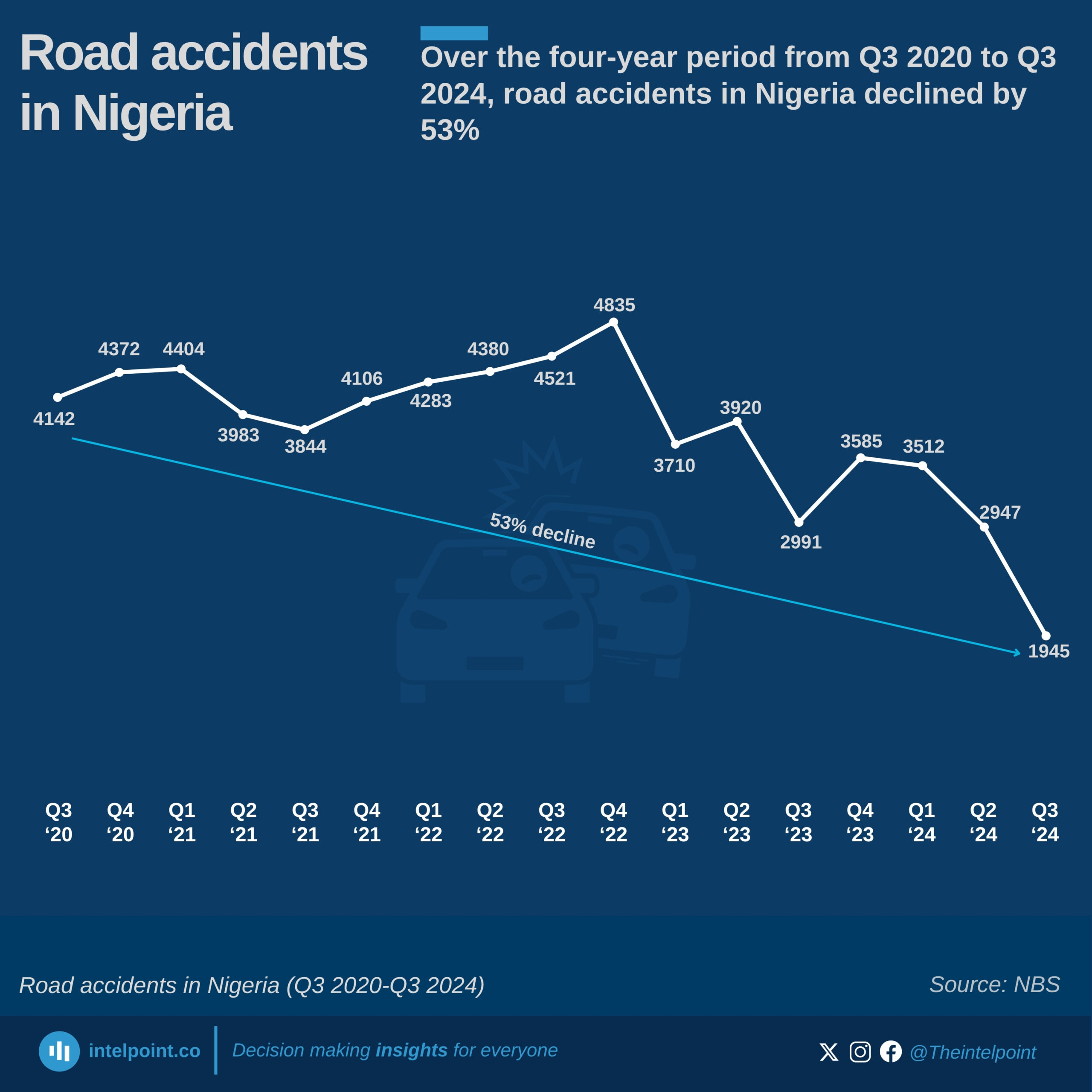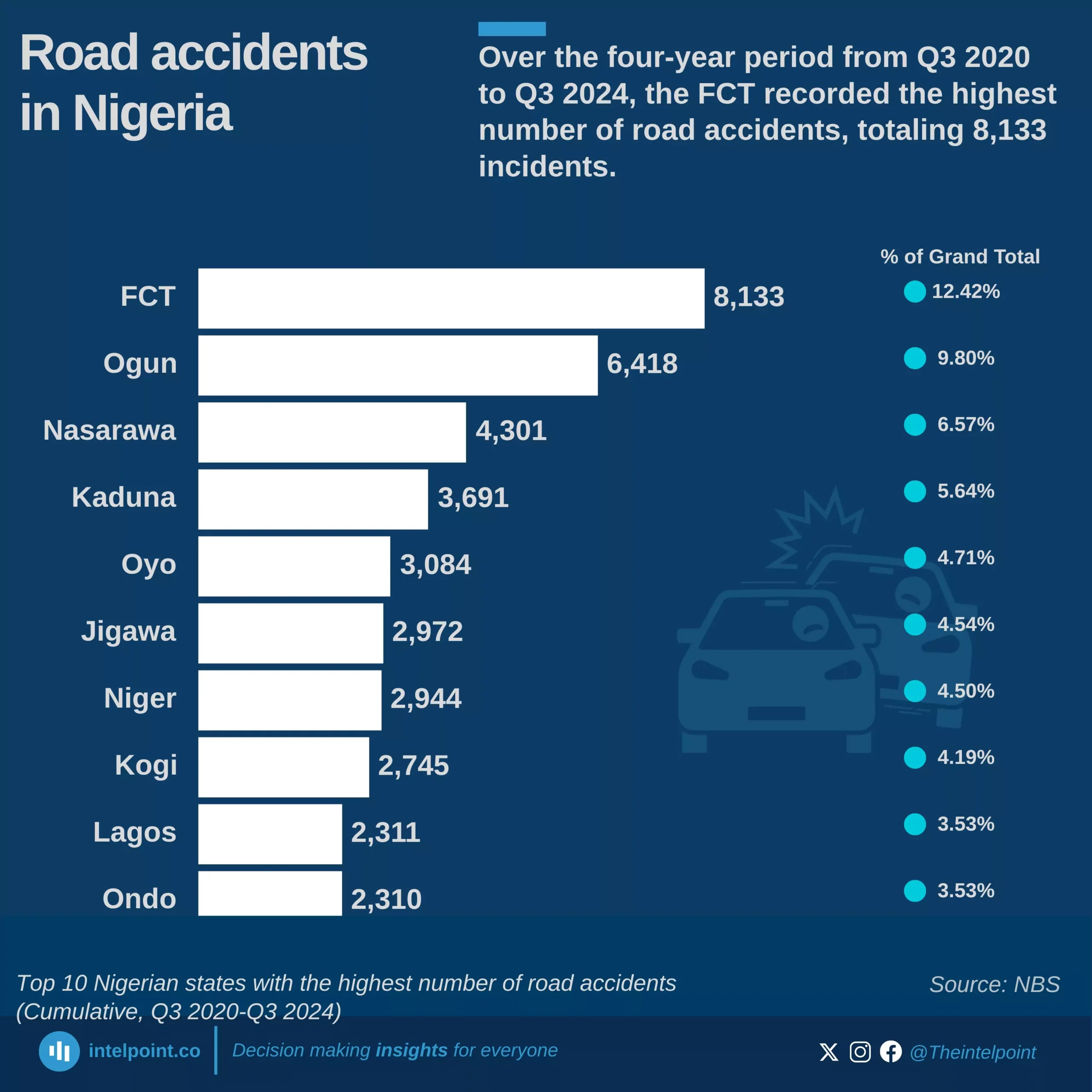In 2023, a staggering ₦721 billion was paid as bribes to public officials in Nigeria, highlighting systemic corruption. Judges and magistrates received the highest average bribe of ₦31,000, reflecting the critical nature of their roles in decision-making processes. Immigration officers followed with an average of ₦17,800, while members of the armed forces received ₦16,600.


FCT, Ogun, and Nasarawa consistently rank as the top three states with the highest number of road accidents.
The FCT recorded its peak accident figures in 2022, particularly in Q2 (842 cases) and Q4 (864 cases).
In Q2 and Q3 of 2024, Ogun State surpassed the FCT in the number of reported accidents.
Across these three states, there has been a notable decline in accident numbers, with an average decrease of approximately 37.6% between Q2 and Q3 2024.



